New one-stop clinic reverses condition mistaken for Alzheimer's disease
- Published
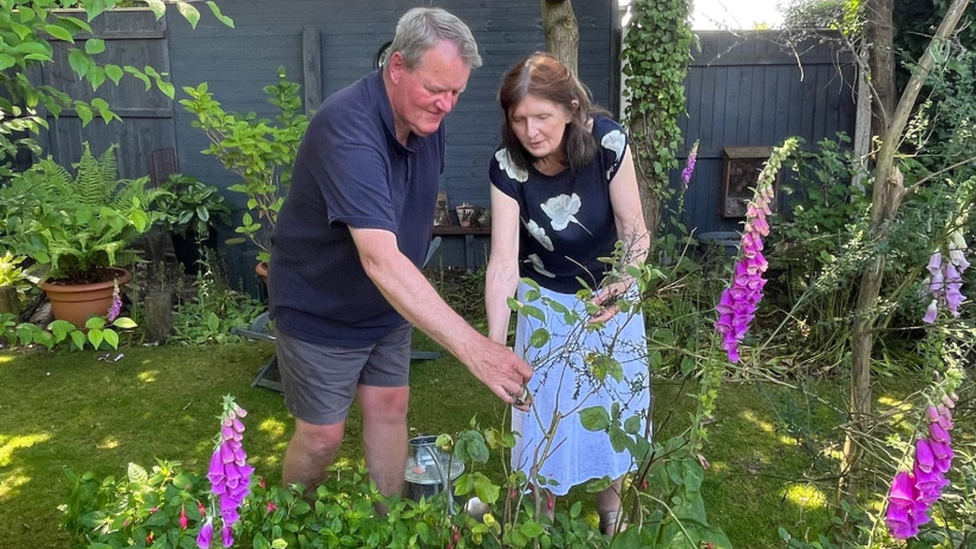
Jackie Middleditch was successfully treated by the clinic team at Addenbrooke's Hospital in Cambridge
Surgeons have set up a one-stop clinic to treat patients with a condition often mistaken for Alzheimer's disease.
The symptoms of normal pressure hydrocephalus (NPH) include memory loss, poor balance, and bladder issues.
A team at Addenbrooke's Hospital in Cambridge is working to reverse NPH, using so-called "shunt surgery".
Clive Middleditch, from Lowestoft, Suffolk, whose wife Jackie was treated for the condition, described the result as "miraculous".
NPH is caused by an abnormal build-up of water in the brain, and typically affects the over-65s.
Doctors say it is frequently mistaken for untreatable forms of dementia, such as Alzheimer's disease, but is potentially reversible.
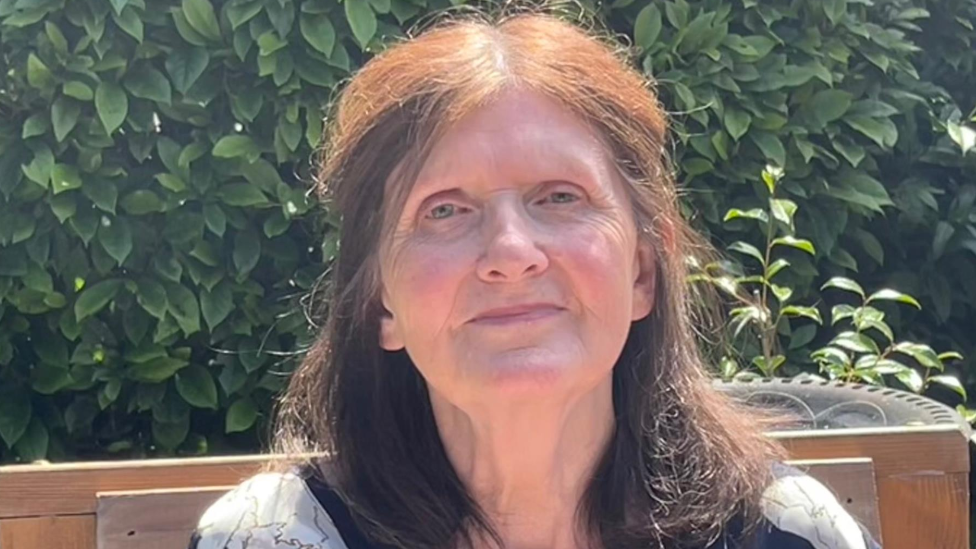
Jackie Middleditch was treated at Addenbrooke's for NPH after fears she was developing dementia
Patients attending the Addenbrooke's clinic undergo a medical consultation, as well as memory and walking tests, to establish if they have NPH and whether surgery will help.
A shunt is a small valve connected to a tube which is inserted into the brain and diverts fluid elsewhere in the body, usually the abdomen.
Mr Middleditch said he feared his wife had dementia when she developed symptoms in 2015, including memory loss, incontinence and an inability to walk and get up.
"One of the doctors picked up that it could be brain pressure - if you add all the things together - it could be normal pressure hydrocephalus, which we'd never heard of," he said.
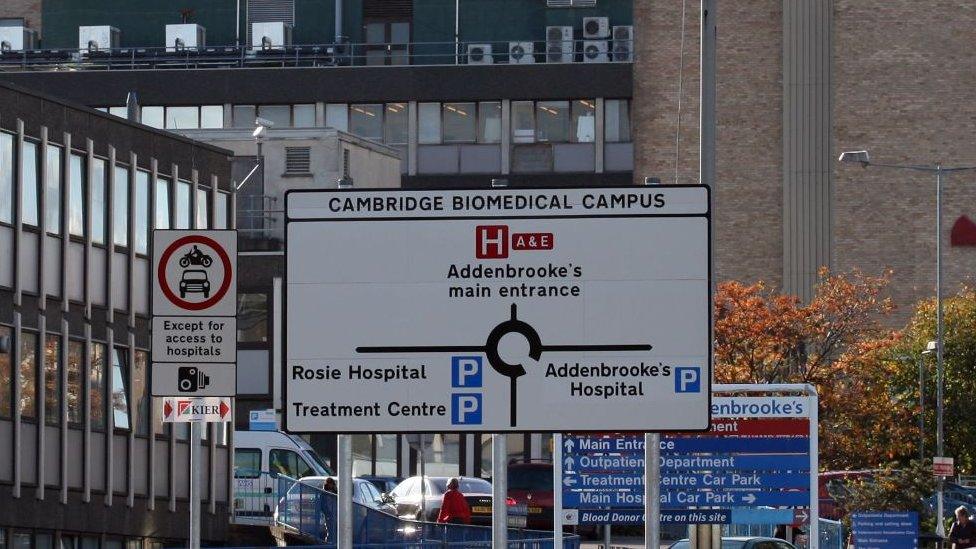
The new clinic has been set up at Addenbrooke's Hospital in Cambridge
Mrs Middleditch was referred to Addenbrooke's Hospital, where the clinic team managed to drain fluid from her spine.
He said that over time, his wife could get out of her chair, her mobility improved - and her memory came back.
"It was an amazing recovery," he added.
"Miraculous is the only word that can describe it, because I've got Jackie back now."
Mrs Middleditch said she was not aware of what was happening to her, apart from feeling "incredibly tired" and "my legs didn't work".
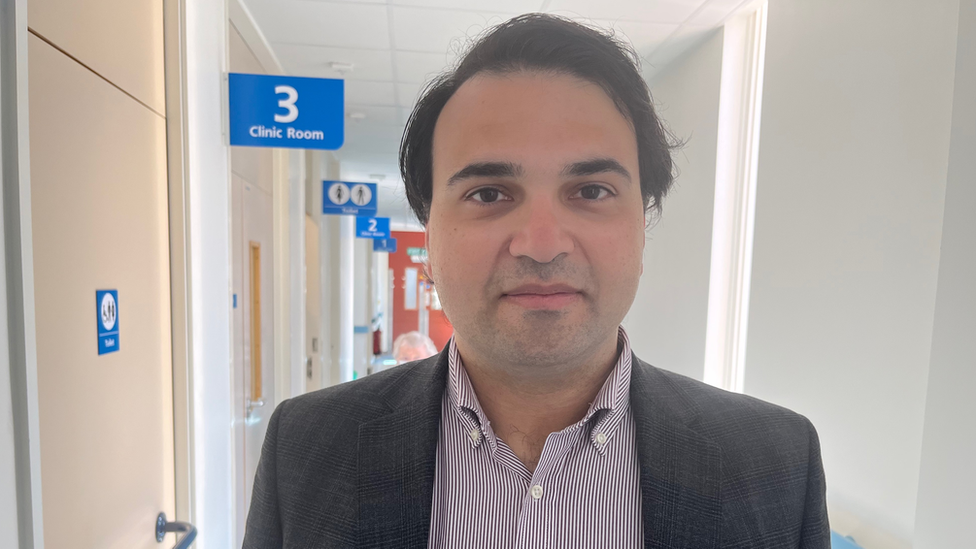
Consultant neurosurgeon Alexis Joannides heads up the new clinic in Cambridge
Consultant neurosurgeon Alexis Joannides, who leads the Addenbrooke's team, said the symptoms of the condition were common as people get older.
"The challenge for us is to treat sooner," he said. "The sooner you treat - the better the outcome."
Mr Joannides added: "Eight or nine out of 10 will benefit from this procedure.
"For some people who benefit this is transformational and it significantly improves their quality of life.
"We've treated NPH for many years but what's different with this clinic is that we're able to do things faster, and with a much better patient experience - all the tests and assessments in one go and in one visit."
The new clinic is part of the Reversible Dementia project, a collaboration between the UK and France led by the University of Cambridge and funded by the European Regional Development Fund.
The team consists of a clinical neuropsychologist, a specialist physiotherapist, an advanced nurse specialist, and a service co-ordinator.
It will aim to "provide more in-depth assessment to help offer tailored care and support to patients with NPH alongside their clinical treatment", a spokesman said.
The clinic takes referrals from GPs and specialists across the East of England.

Find BBC News: East of England on Facebook, external, Instagram, external and Twitter, external. If you have a story suggestion email eastofenglandnews@bbc.co.uk, external
- Published4 June 2022

- Published11 May 2022
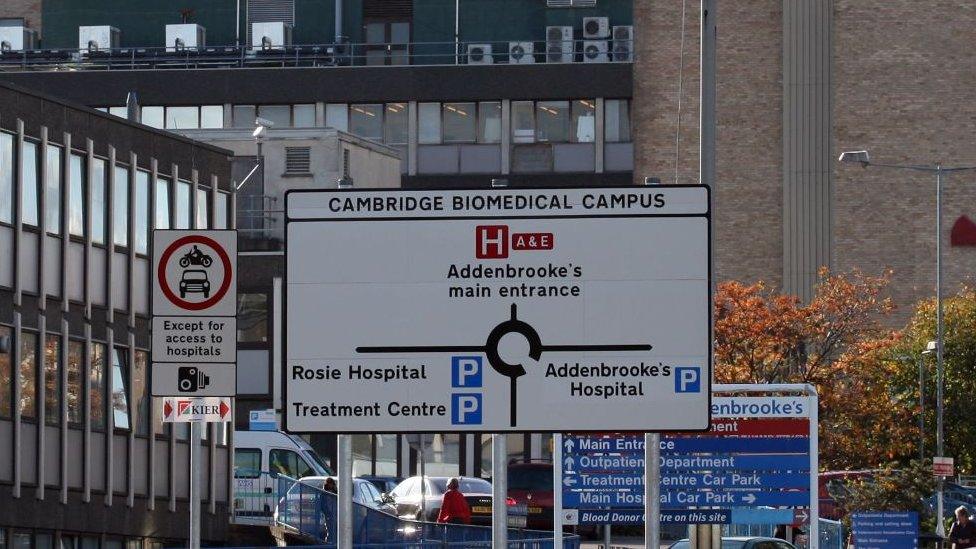
- Published17 March 2022
